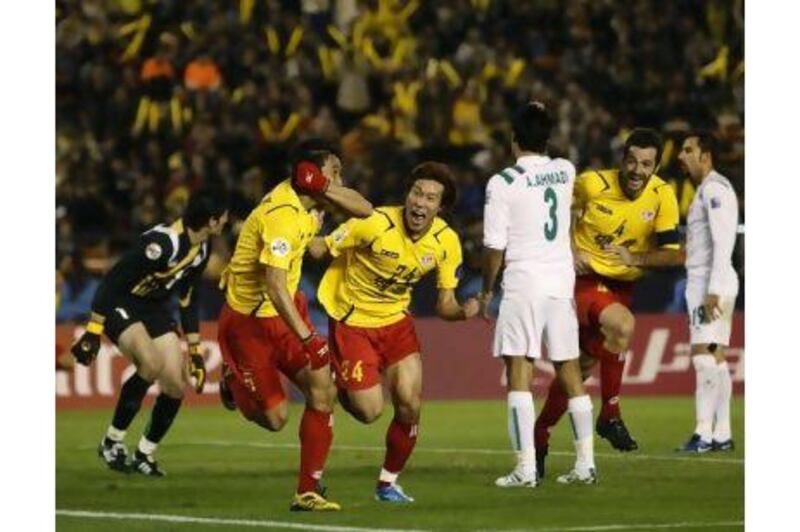Hark back to the end of 2005. Saudi Arabia and Iran had comfortably qualified for the 2006 World Cup, an eighth consecutive tournament with West Asian representation.
At the club level, the Asian Champions League had been in existence for only three years but the trophy had yet to leave the region.
The 2005 final was a local affair with Al Ittihad of Saudi Arabia winning their second successive title by defeating the UAE's Al Ain, the 2003 champions, in the final.
That was the high point. Germany 2006 was a disappointment for Iran and Saudi Arabia, and since that summer the balance of continental power has shifted steadily eastwards to take up residence in South Korea and Japan.
The 2010 World Cup saw those two not only qualify, along with North Korea and Australia, but impress the watching world in reaching the second round.
Meanwhile, West Asia was shut out of the 2010 World Cup, the final indignity being Bahrain's inability to qualify ahead of New Zealand in a home-and-home play-off.
Meanwhile, in the Asian Champions League, Seongnam Ilhwa Chunma's victory over Zob Ahan of Iran in November marked a fifth successive East Asian triumph in that tournament.
The East versus West dynamic is particularly pertinent in Abu Dhabi this weekend as South Korea's Seongnam face the Pro League champions Al Wahda in a quarter-final of the Club World Cup tomorrow. Not only is regional pride on the line, so is a high-profile semi-final with Inter Milan, the European champion.
Afshin Ghotbi, Iran's national team coach, knows both ends of the continent, after his time at the 2002 and 2006 World Cups on the South Korea coaching staff. He believes that the East has forged ahead.
"The East has built a landscape for success," he said. "Japan and South Korea have professional leagues, have hosted the World Cup, and are exporting top talent to European leagues, and these are just a few examples.
"This long-term vision and its focus on development is in contrast to the focus on short-term results at both club and national team in the West.
"The West has the individual talent and passion for the game but the East has a long-term strategic approach that has given them the edge. The West must learn fast or the gap will only get bigger."
Bob Houghton, the India manager who has coached both Al Ittihad and China, agrees with his Iranian counterpart.
He believes that the professionalism and organisation of the federations in the East are paying dividends.
"I can remember going to the Asian Games with China in 1998," the Englishman said. "The Koreans and the Japanese decided, before it ever became a rule, that they would use the competition as development and they sent their Under 20 teams. They didn't do great but the West Asians sent their full teams and Iran won. If you look now at what has happened to Korea and Japan and then look at what has happened to some of the others, then you can think that they had foresight."
Shin Tae-yong, the Seongnam coach, said that club teams in the West seem to value star power more than team goals.
"The expensive or famous players are in West Asia, for sure," he said this week. "But especially in Korea, instead of the personal talents we're thinking more about the group and teamwork, and that's how we are able to show great success. And that's why East Asia has shown great success."
Korea and Japan are approaching the happy medium of football leagues in which an increasing number of their best players are heading to Europe to play at the highest level on a regular basis while the leagues back home are at a good enough standard to assist in the development of the young talent coming through to replace the departed stars.
West Asia is still waiting for one of their own to make that sort of impact, with the likes of Saudi Arabia's Yasser at Qahtani dipping toes in European waters before choosing to stay in his comfort zone.
In the English Premier League, the region is represented only by Wigan Athletic's Omani goalkeeper, Ali al Habsi. Elsewhere in Europe, even Iran, the country that traditionally exports more players to the big leagues than any other in the region, has only two at the moment - Javad Nekounam and Masoud Shojaei with Osasuna of Spain.
Nekounam accepts that numbers are low but insists it is a temporary situation.
"It is just a cycle," said the Iranian captain. "If Iran and other teams in the region had played at the World Cup, they [their players] would have been signed by European clubs.
"Football in the region will become good again soon, and you will see this at the Asian Cup."





